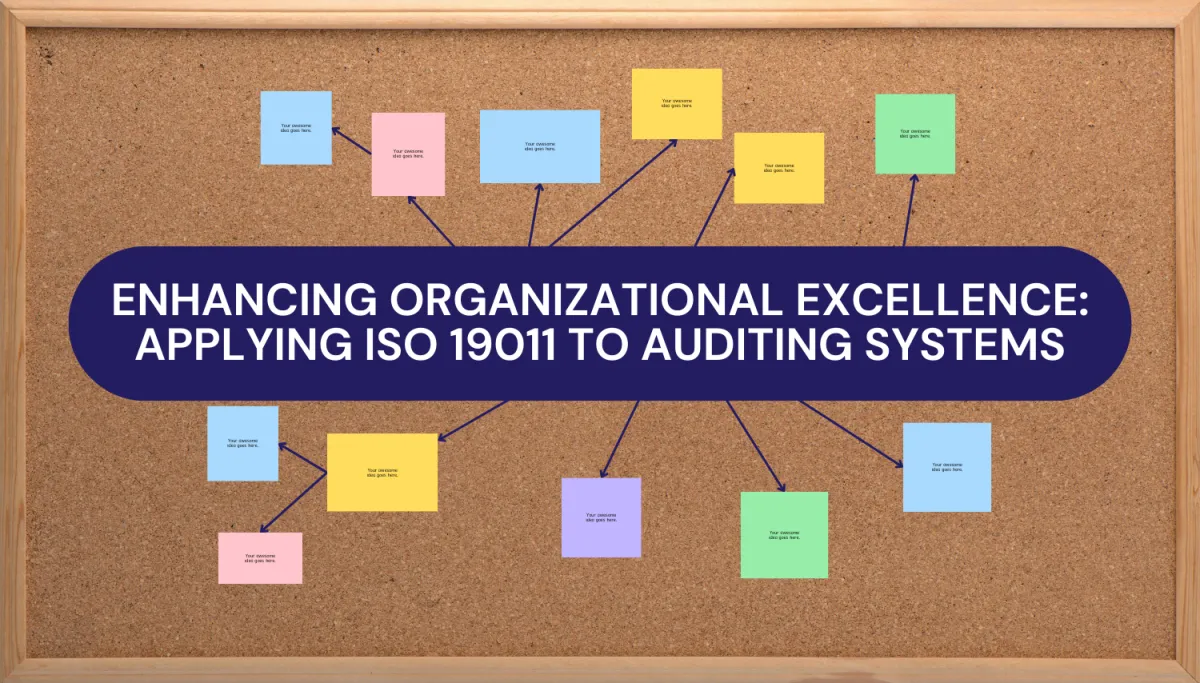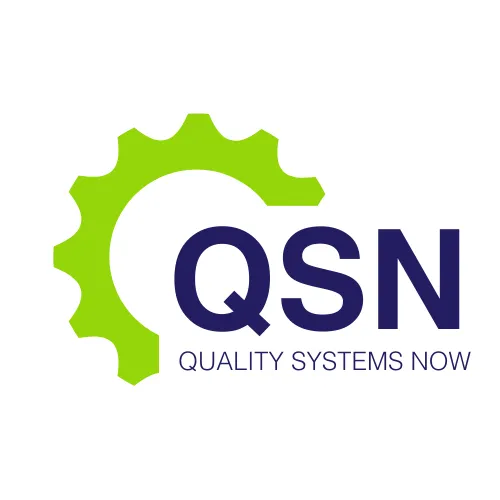LATEST NEWS

Enhancing Organizational Excellence: Applying ISO 19011 to Auditing Systems
Auditing systems serve as invaluable tools for assessing performance, identifying areas for enhancement, and ensuring compliance with industry standards. However, the effectiveness of audits hinges not only on their execution but also on the framework guiding their implementation. ISO 19011, the international standard for auditing management systems, offers a comprehensive set of guidelines and best practices to optimize the auditing process.
Today, we delve into the world of auditing systems, exploring the principles, procedures, and benefits of applying ISO 19011. From understanding the foundational concepts to practical application strategies, we navigate the intricacies of auditing within the framework of ISO 19011.
Join us on this journey as we uncover the essential elements of ISO 19011 and discover how they can transform auditing systems, drive organizational improvement, and pave the way for sustained success in today's competitive landscape.
Are you a good auditor?
Are you comfortable to complete an inspection, either in your own company or with a supply or third party?
Are you confident when it comes to the fundamental principles of auditing?
If not, QSN Academy's new course, Auditor Training 101, is designed to help you do just that.
Audits serve as the backbone for evaluating processes, identifying areas for improvement, and ensuring adherence to quality management principles. However, to conduct effective audits, organizations need a robust framework that provides guidelines for the auditing process. ISO 19011, the international standard for auditing management systems, serves as this guiding light, offering a comprehensive approach to auditing that fosters continual improvement and organizational excellence.
Understanding ISO 19011:
ISO 19011 provides a universal framework for auditing management systems, regardless of industry or organizational size. It encompasses principles, procedures, and best practices essential for planning, conducting, and managing audits effectively. The standard emphasizes the importance of impartiality, competence, confidentiality, and transparency throughout the auditing process. By adhering to ISO 19011 guidelines, organizations can enhance their auditing practices, thereby bolstering trust among stakeholders and achieving operational excellence.
Key Principles of ISO 19011:
ISO 19011 outlines several key principles that underpin effective auditing systems:
Integrity and Ethical Conduct: Auditors must uphold integrity and ethical conduct at all times, ensuring fairness, impartiality, and confidentiality throughout the auditing process. By maintaining high ethical standards, auditors enhance trust and credibility in their findings and recommendations.
Independence and Objectivity: Auditors should remain independent and objective, free from bias or undue influence that could compromise the integrity of the audit. Independence ensures that audit findings are based on factual evidence rather than personal opinions or external pressures.
Professionalism and Competence: Competent auditors possess the necessary knowledge, skills, and experience to conduct thorough and insightful audits. ISO 19011 emphasizes the importance of continuous professional development to ensure auditors remain abreast of industry developments and best practices.
Risk-Based Approach: Audits conducted in accordance with ISO 19011 employ a risk-based approach, focusing resources on areas of greatest significance and potential impact. By identifying and prioritizing risks, organizations can allocate resources more efficiently and address critical issues proactively.
Transparency and Communication: Effective communication is essential throughout the auditing process, from initial planning to reporting and follow-up. Auditors should communicate clearly and transparently with auditees, stakeholders, and relevant parties, fostering understanding and collaboration.
Application of ISO 19011:
Applying ISO 19011 to auditing systems involves a systematic approach encompassing several key stages:
Planning: The audit process begins with careful planning, including defining the scope, objectives, and criteria for the audit. Auditors must consider relevant factors such as the organization's size, complexity, and regulatory requirements when developing the audit plan.
Preparation: Adequate preparation is crucial to conducting a successful audit. This involves gathering relevant documentation, scheduling audit activities, and selecting qualified auditors with the necessary expertise and impartiality.
Conducting the Audit: During the audit, auditors collect evidence through interviews, document reviews, and observation of processes. They assess conformity to applicable standards, identify strengths and weaknesses, and evaluate the effectiveness of the management system.
Reporting: Following the audit, auditors prepare a comprehensive report documenting their findings, conclusions, and recommendations. The report should be clear, concise, and objective, providing valuable insights to management and stakeholders.
Follow-Up: The audit process does not end with the issuance of the audit report. Organizations must implement corrective actions to address identified non-conformities and opportunities for improvement. Follow-up audits may be conducted to verify the effectiveness of corrective actions and ensure continual improvement.
Benefits of Applying ISO 19011:
Implementing ISO 19011 principles in auditing systems offers numerous benefits to organizations:
Enhanced Quality and Compliance: By adhering to ISO 19011 guidelines, organizations can improve the quality of their products, services, and processes while ensuring compliance with relevant standards and regulations.
Improved Risk Management: A risk-based approach to auditing enables organizations to identify and mitigate potential risks more effectively, thereby enhancing resilience and business continuity.
Increased Stakeholder Confidence: Transparent, objective, and well-executed audits conducted in accordance with ISO 19011 principles build trust and confidence among stakeholders, including customers, regulators, and investors.
Continual Improvement: ISO 19011 promotes a culture of continual improvement, where audit findings are used as opportunities to drive positive change and innovation within the organization.
Cost Savings: Effective auditing systems can help organizations identify inefficiencies, reduce waste, and optimize resource allocation, leading to cost savings and improved financial performance.
In conclusion, applying ISO 19011 to auditing systems is essential for organizations seeking to achieve excellence, compliance, and continual improvement. By embracing the key principles outlined in ISO 19011, organizations can enhance the effectiveness, integrity, and transparency of their auditing practices, thereby fostering trust, driving performance, and ensuring long-term success in today's dynamic business environment.
